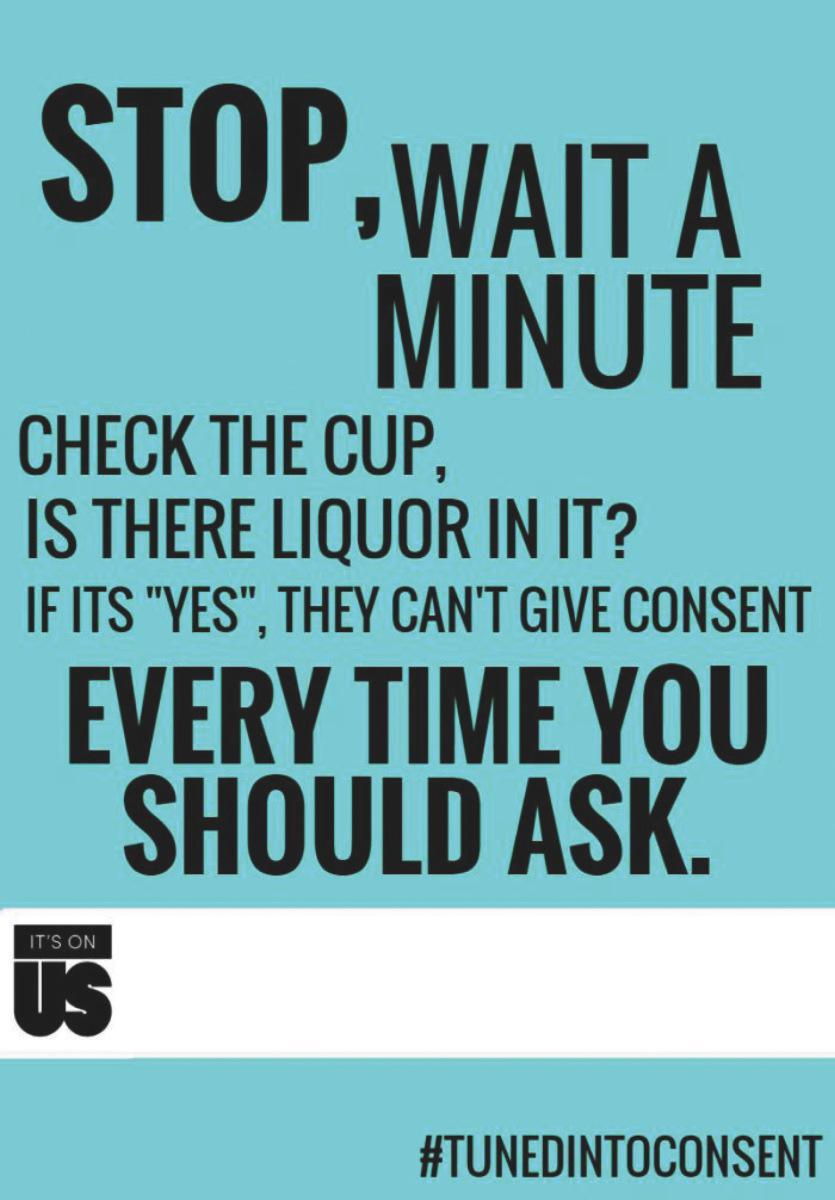At Simple Justice, Scott Greenfield includes a poster from Southeast Missouri State University that nicely summarizes both the institutional infantilization of university students and the current double standard on booze and consent rules:

There is universal agreement that any female (though not male) who has passed out is incapable of giving consent to sex. But as the spectrum of reaction to alcohol or drugs comes closer to the sober end, it becomes increasingly problematic. The word used to describe a woman who cannot consent is “incapacitation.”
What is incapacitation? That’s impossible to say. It usually described by either specific instances of conduct (“if she’s puking her guts out, that means she’s incapacitated”), which offers no guidance when she’s not puking her guts out, or when she’s done puking her guts out, or before she’s puking her guts out.
The underlying rationale is that a woman who is so drunk that she cannot formulate knowing, intentional and voluntary consent, cannot consent to sex. This is a dubious standard, as the incapacity to consent doesn’t mean she would not consent, but that she cannot consent.
To put this in context, consider a person who fully consents, enthusiastically desires to engage in conduct, but wasn’t specifically asked beforehand. This person can truthfully assert that it was non-consensual under the Affirmative Consent standard, because she never overtly expressed consent.* The objective standard is not met, although the subjective standard is fully met.
The problem is reminiscent of drunk driving, which was determined by the objective inability to perform the tasks necessary to safely drive a car before the law turned to Blood Alcohol Content as a proxy, an inadequate measure but a convenient one for law enforcement to prove. Sexual incapacitation suffers from a lack of definition and no objective basis.
What is clear about incapacitation is that it’s not when there is “liquor in the cup,” or when “she has touched alcohol,” any more than it would be a crime for her to thereafter get behind the wheel of a car. Yet, the notion that any alcohol (or drugs, which don’t seem to find their way onto posters or flyers as much) per se vitiates consent is spreading and being used as the hard and fast line.



